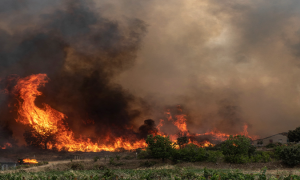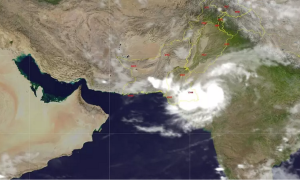A recent report by the Intergovernmental Panel on Climate Change (IPCC) highlights the alarming increase in global surface temperatures since 1970. According to the 2023 synthesis report, human-caused warming has accelerated from 0.8°C in the second half of the 19th century to 1.3°C in the 2010s.
The report reveals that global temperatures rose by 1.1°C between 2011 and 2020 compared to the period between 1850 and 1900. It emphasizes that human-induced climate change has triggered extreme meteorological and climate events such as heat waves, heavy rainfall, droughts, and tropical cyclones.
The impacts of these changes on ecosystems, including the hydrological effects resulting from the melting of glaciers and thawing permafrost in mountain and arctic ecosystems, are becoming irreversible. The report warns that nearly 50% of coastal and wetland ecosystems have been destroyed in the past century due to rising sea levels, increased temperatures, and extreme climate events.
Climate change is also accelerating desertification and soil degradation, particularly in coastal areas, river deltas, drylands, and permafrost regions. While average agricultural production has increased, climate change has hindered global output growth over the past 50 years, leading to food insecurity and reduced water security for millions of people.
Read More: By 2050, Pakistan’s annual GDP can decline 18-20% due to climate change risks
In urban areas, climate change is causing adverse effects on human health, livelihoods, and essential infrastructure, with rising temperatures contributing to increased air pollution. The report further states that climate change leads to economic losses and disrupts services, particularly in urban infrastructure, transportation, water and sanitation, and energy systems.
The IPCC report predicts that global warming will continue to increase in the near future across all scenarios and models considered. However, there is hope as governments are increasingly focusing on climate change, spurred by international agreements and heightened national aspirations for climate action.
The report emphasizes that combating climate change and global warming will require effective planning, political commitment, well-organized governance structures, and institutional frameworks encompassing legal, policy, and strategic aspects. It stresses the need for clear objectives, adequate financial resources and instruments, coordination across various policy areas, and inclusive management processes.



























